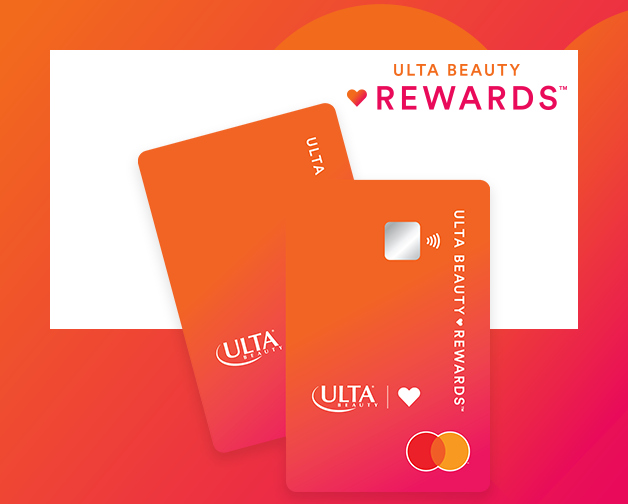Introduction
Small businesses often struggle with funding and cash flow. In fact, according to a survey, about 82% of small businesses that fail do so because of cash flow problems. Thankfully, there are alternative financing options available such as merchant cash advance (MCA) offered by companies like Blursoft. In this article, we will dive deep into what MCA is, how it works, its pros and cons, alternatives, a step-by-step guide to getting an MCA from Blursoft, a comparison with traditional loans, and tips for using MCA effectively.
What is Merchant Cash Advance?
A merchant cash advance is a type of business funding that gives a lump sum payment to a business in exchange for a portion of its future sales. Essentially, it is not a loan but a way of getting access to future revenue. The borrower agrees to pay back the advance along with a fee or factor rate, which means that the lender makes money by charging a higher rate than the amount advanced. Unlike traditional loans, an MCA does not require collateral or a personal guarantee and has a faster approval process.
How Does Merchant Cash Advance Work?
Merchant cash advances work by taking a percentage of each day’s credit card transactions until the advance is paid off. The percentage taken out each day is called the holdback rate, and it can range from 10% to 50% depending on the lender and the agreement. The repayment period varies, but it typically takes around six months to a year to pay off an MCA. The amount of funding you qualify for depends on your monthly credit card sales.
Pros and Cons of Merchant Cash Advance
As with any financial product, merchant cash advance has its advantages and disadvantages. Here are some of them.
Pros
- Faster approval process compared to traditional loans
- No collateral or personal guarantee required
- No fixed monthly payments, repayment is based on sales
- Good credit score is not required
Cons
- Higher fees and interest rates compared to traditional loans
- Paying back an MCA can significantly cut into your cash flow
- Can be difficult to calculate the true cost of an MCA due to varying holdback rates
- Not regulated like traditional loans
Alternatives to Merchant Cash Advance
Though merchant cash advance can be an effective way of getting access to quick funding, it is not suitable for everyone. Here are some alternatives to consider:
- Small Business Administration (SBA) loans: These are government-backed loans that offer low-interest rates and flexible repayment options.
- Business lines of credit: A line of credit allows you to borrow funds up to a certain limit, and you only pay interest on the amount used.
- Invoice financing: This option lets you sell your unpaid invoices to a lender in exchange for cash upfront.
- Crowdfunding: This platform allows businesses to raise money from a large number of people online.
Step-by-Step Guide to Getting a Merchant Cash Advance from Blursoft
Blursoft is one of the most reputable MCA lenders in the market. Here’s how to get an MCA from them:
- Apply online: Visit Blursoft’s website and fill out their application form. It takes less than five minutes to complete.
- Get approved: Once approved, you will receive a pre-approved offer with the terms and conditions.
- Sign the agreement: If you agree with the terms, sign the agreement and return it to Blursoft.
- Receive the funds: Once the agreement is signed, the funds will be deposited into your account within 24 hours.
- Repay the advance: The repayment process starts automatically, and the agreed-upon percentage of your daily sales will be withheld until the advance is fully paid.
Comparison with Traditional Loans
MCAs are often compared to traditional loans because of their similarities and differences. Here’s how they compare:
Similarities
- Both offer funding for businesses
- Both have fees and interest rates
- Both require repayments
Differences
- MCAs are based on future sales while traditional loans are based on creditworthiness and collateral.
- MCAs have higher fees and interest rates compared to traditional loans.
- Traditional loans have a fixed payment schedule while MCA payments fluctuate depending on sales.
Tips for Using Merchant Cash Advance Effectively
Merchant cash advance can be a useful tool for business owners, but it is important to use it wisely. Here are some tips to make the most out of an MCA:
- Use it only for short-term expenses or emergencies
- Understand the true cost of the MCA before signing the agreement
- Negotiate the terms and conditions with the lender
- Keep track of your daily sales to ensure accurate repayment amounts
The Best Way to Fund Your Business
Merchant cash advance can be an effective way of getting access to quick funding for your small business. But like any financial product, ithas its pros and cons, and it’s important to consider all your options before making a decision. If you need money quickly and have a steady stream of credit card sales, an MCA may be a good option for you. However, if you have good credit and collateral, a traditional loan or SBA loan may offer better terms and lower interest rates.
At the end of the day, finding the best way to fund your business depends on your unique needs and circumstances. Whether you choose an MCA, traditional loan, or alternative financing option, make sure to do your due diligence, understand the terms and conditions, and use the funds wisely.
Conclusion
In summary, merchant cash advance is a popular alternative financing option for small businesses struggling with cash flow problems. While it has its advantages such as faster approval times and no collateral requirements, it also has its downsides such as higher fees and interest rates. Before choosing an MCA, make sure to consider all your options and understand the true cost of the agreement. By following the tips outlined in this article, you can make the most out of your merchant cash advance and effectively fund your business.
FAQs
- What is the difference between a merchant cash advance and a payday loan? A merchant cash advance is an advance on future credit card sales while a payday loan is typically a short-term loan based on a borrower’s income and payable on their next payday.
- How long does it take to repay a merchant cash advance? It typically takes around six months to a year to repay a merchant cash advance, but repayment periods vary depending on the lender and agreement.
- What is a holdback rate in merchant cash advance? A holdback rate is the percentage of daily credit card sales that the lender withholds until the advance is fully paid off.
- Is a merchant cash advance regulated like traditional loans? No, merchant cash advances are not regulated like traditional loans, which means lenders can charge higher fees and interest rates.
- Can I negotiate the terms of a merchant cash advance? Yes, you can negotiate the terms and conditions of a merchant cash advance with the lender to get the best deal possible.## What are the pros and cons of a merchant cash advance?
Pros:
- Faster approval times: Merchant cash advances typically have faster approval times compared to traditional loans, allowing businesses to get the funds they need quickly.
- No collateral required: Unlike traditional loans that require collateral, merchant cash advances are unsecured, which means businesses don’t have to put up any assets as collateral.
- Flexible repayment terms: Merchant cash advances have flexible repayment terms based on daily credit card sales. This means businesses pay back more when sales are high and less when sales are low.
- Bad credit is not necessarily a barrier: Merchant cash advances are often available to businesses with poor credit scores or no credit history.
- No restrictions on how you use the funds: With a merchant cash advance, businesses can use the funds for any purpose, unlike traditional loans which may have restrictions on how the funds are used.
Cons:
- High fees and interest rates: Merchant cash advances typically have higher fees and interest rates compared to traditional loans, making them a more expensive financing option.
- Small businesses may struggle to make repayments: The flexible repayment terms of merchant cash advances can be a double-edged sword, as it may be difficult for small businesses to make repayments during slow periods.
- Limited options for dispute resolution: Merchant cash advances are not regulated like traditional loans, which means businesses have limited options for dispute resolution if something goes wrong.
- Negative impact on credit score: If a business defaults on a merchant cash advance, it can have a negative impact on their credit score and make it harder to access other forms of financing in the future.
- Lack of transparency: Some merchant cash advance lenders are not transparent about the true cost of the agreement, which can lead to businesses paying more than they expected.
Alternatives to merchant cash advances
While merchant cash advances can be a viable option for some businesses, there are several alternatives worth considering:
Traditional loans
Traditional loans from banks and credit unions typically offer lower interest rates and fees than merchant cash advances. However, they may have stricter requirements regarding collateral, credit score, and time in business.
Small Business Administration (SBA) loans
SBA loans are government-backed loans designed to help small businesses access financing. They offer low-interest rates and longer repayment terms than traditional loans, but the application process can be lengthy and rigorous.
Equipment financing
If a business needs to purchase equipment, they can consider equipment financing, which involves using the equipment as collateral for a loan. The interest rates and repayment terms may be more favorable than those of merchant cash advances.
Invoice factoring
Invoice factoring involves selling unpaid invoices to a lender in exchange for immediate cash. It can be a good option for businesses that need to improve their cash flow quickly but may be more expensive than other financing options.
Tips for getting the most out of your merchant cash advance
- Shop around: Research different lenders and compare their rates and terms to find the best deal possible.
- Negotiate: Don’t be afraid to negotiate the terms and conditions of the agreement with the lender to get the best deal possible.
- Understand the true cost: Make sure you understand the true cost of the agreement, including all fees and interest rates, before signing on the dotted line.
- Use the funds wisely: Only use the funds for necessary expenses and avoid using them for non-business purposes.
- Have a plan in place for repayments: Make sure you have a plan in place for how you will make repayments during slow periods, and ensure you can afford the holdback rate without sacrificing the health of your business.
The best merchant cash advance providers
There are many merchant cash advance providers out there, each with their own rates, terms, and requirements. Some of the best merchant cash advance providers include:
- PayPal Working Capital: Offers flexible repayment terms and no credit check.
- Fundbox: Offers fast approval times and allows businesses to repay early without penalties.
- Kabbage: Offers high loan amounts and flexible repayment terms.
- OnDeck: Offers competitive rates and a streamlined application process.
- Credibly: Offers transparent pricing and no hidden fees.
Title: Merchant Cash Advance: Pros, Cons, and Alternatives
If your small business is struggling with cash flow problems, a merchant cash advance may be an option worth considering. However, before making a decision, it’s important to understand the pros and cons of this financing option, as well as alternatives that may offer better terms and lower interest rates.
In this article, we’ve explored the world of merchant cash advances, including their advantages and disadvantages, alternatives, tips for getting the most out of them, and some of the best providers on the market. By weighing all your options and doing your due diligence, you can make an informed decision and find the financing option that works best for your business.




